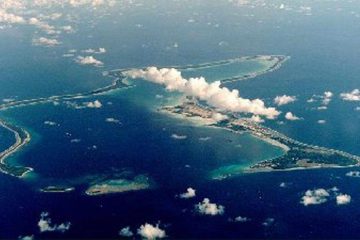Angola: A Nation on the Rise

Introduction to Angola
Angola, a nation located on the south-western coast of Africa, is experiencing significant transformation in the context of its economic and political landscape. As one of the fastest-growing economies in Africa, Angola’s relevance on the global stage has grown, particularly due to its abundance of natural resources and strategic geographic position. The country is notably rich in oil, diamonds, and agriculture, which has become a key driver for its recent development.
Recent Developments and Economic Growth
In recent years, Angola has witnessed a considerable shift in its economic framework. Following the end of its civil war in 2002, the country began to invest heavily in infrastructure and public services, leading to impressive GDP growth. According to the African Development Bank, Angola’s economy has rebounded strongly, with a projected growth rate of 2.5% in 2023, driven primarily by oil production and exportation, which constitutes the majority of the national revenue.
The Angolan government, under President João Lourenço, has implemented various reforms aimed at attracting foreign investment and diversifying its economy beyond oil dependency. This includes improvements in governance, a focus on agricultural development, and the promotion of tourism. For instance, the launch of the ‘Angola 2025’ strategy highlights the government’s commitment to reducing poverty and enhancing employment opportunities through various sectors
Political Stability and Governance
The political climate in Angola has also been a focal point in recent discussions. President Lourenço’s administration has put forward a series of anti-corruption measures and a push for transparency aimed at restoring public trust. These initiatives have reinforced political stability, which is paramount for fostering an environment attractive to investors. The Angolan parliament recently passed several laws enhancing economic freedom, further demonstrating the government’s commitment to supporting the private sector.
Challenges Ahead
Despite the promising developments, Angola continues to face considerable challenges. High unemployment rates and widespread poverty remain pressing issues, particularly in rural areas where many people still depend on subsistence farming. Additionally, the impact of global oil prices and climate change poses significant risks to the economy’s sustainability. Analysts recommend that Angola must increasingly focus on diversifying its economic activities and investing in renewable energy to safeguard against future shocks.
Conclusion
As Angola strides towards a new future marked by economic growth and political reform, it offers valuable lessons in resilience and transformation. The trajectory for the nation appears optimistic, provided that the government successfully addresses ongoing challenges while capitalising on its rich natural resources. For investors and global stakeholders, Angola represents not just an opportunity, but a case study of a nation redefining its path amid a dynamic global landscape.







